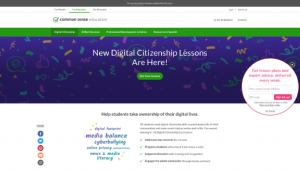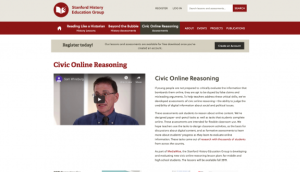 |
August 23, 2019 Volume 25, Number 34 |
General Interest |
Theme: Digital Citizenship |
Revisited |
In the News |
General InterestBack to Top | |
 |
|
 |
|
 |
|
 |
|
 |
|
Theme: Digital CitizenshipBack to Top | |
 |
|
 |
|
 |
|
 |
|
 |
|
RevisitedBack to Top | |
 |
|
In the NewsBack to Top | |
New Ebola Treatments Found as Congo Outbreak Continues to Spread | |
|
A Cure for Ebola? Two New Treatments Prove Highly Effective in Congo "It Was Like a Miracle," BU NEIDL Researcher Says of Powerful New Ebola Treatments An Ebola Doctor Explains the Good News and Bad News of the New Treatment Breakthrough What does Ebola actually do? The Ebola Virus Explained "Most complex health crisis in history": Congo struggles to contain Ebola On August 12, 2019, the World Health Organization (WHO) and the National Institute of Allergy and Infectious Disease (NIAID), among other organizations, announced that researchers working in the Democratic Republic of Congo (DRC) have found two effective treatments for those infected with the Ebola virus. The treatments, which are both still experimental, have saved approximately 90 percent of infected patients who received them. Because of the treatments' success rates thus far, they are now being offered to all Ebola patients in the DRC. Given the ongoing year-long epidemic of this deadly virus in the region, which the WHO declared a global health emergency in July 2019, news of this medical breakthrough has been received with great excitement. However, researchers also caution that these new treatments do not mean that Ebola is no longer a danger. The long-term effects of Ebola infection and of the new treatment remain unknown. In addition, residents of the eastern part of the country, where the outbreak has been spreading, deeply distrust the DRC government, which continues to present a challenge. The director of Congo's National Institute for Biomedical Research, Dr. Jean-Jacques Muyembe, hopes that, "Now we can say that 90 percent can come out of treatment cured, [Congolese residents] will start believing it and developing trust." [JDC] Readers interested in learning more about this medical breakthrough will find recent articles on the subject at the first three links. Written by Donald G. McNeil, Jr., for The New York Times, the first article gives an overview of the new treatments and their development. The second link leads to an article written by Kat J. McAlpine for Boston University's research news publication The Brink. This article delves into some of the nuances of the new treatments and specifies that, while this Ebola breakthrough is important, it is not yet a cure for the disease. The third article, written by Nicole Javorsky for Mother Jones, features a recent interview with Dr. Margaret Harris, who is part of the WHO's Ebola response team, explaining "how drugs are only part of the battle against the virus." Those seeking background information about the Ebola virus should check out the fourth and fifth links, which lead respectively to a 2014 article by Kelly Servick for Science magazine and a 5-minute video published in November 2014 by Kurzgesagt (see the 12-04-2015 Scout Report) explaining how the virus operates. Finally, at the sixth link readers will find a June 2019 article written by Peter Beaumont for The Guardian explaining why the current Ebola outbreak in the DRC has been so difficult to contain. | |





